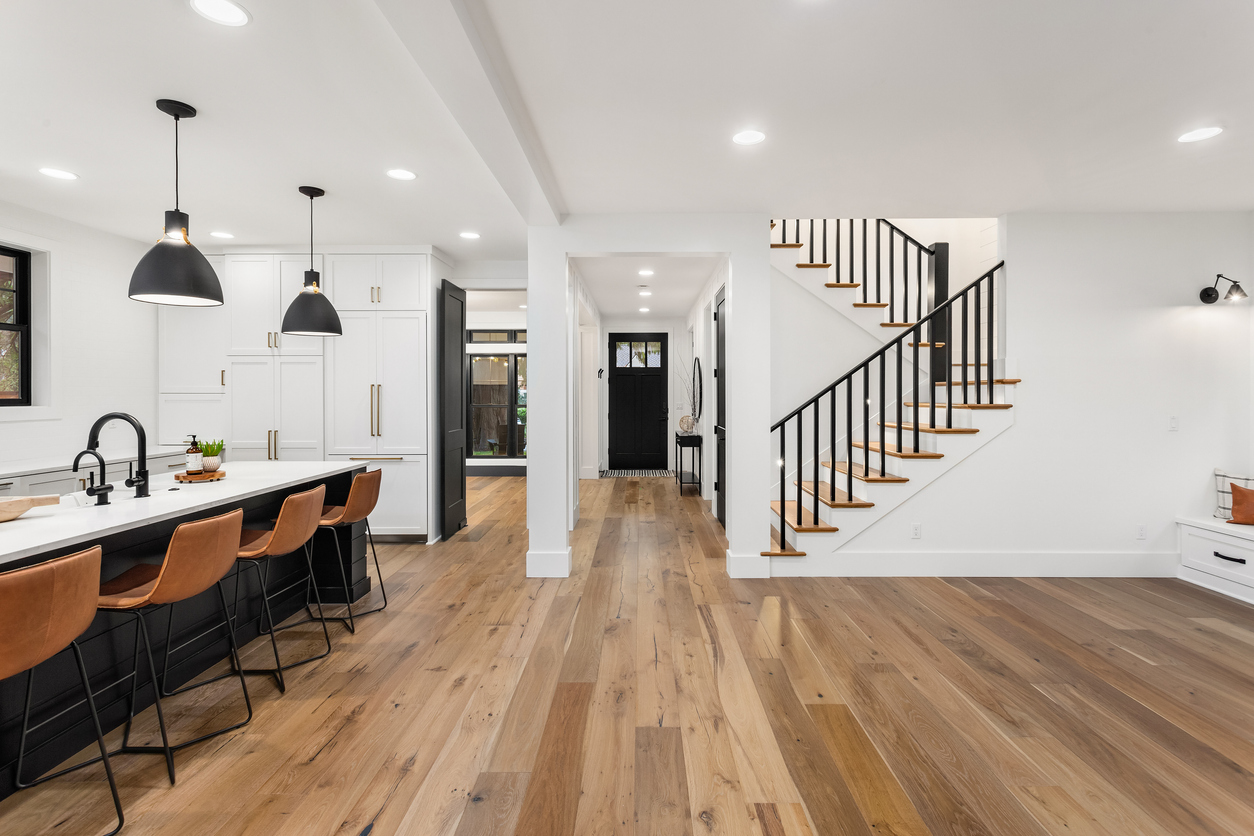
In a world where every choice echoes through our planet's forests, your home's foundation—quite literally—deserves a sustainable upgrade. Hardwood flooring isn't just about beauty and durability; it's a canvas for environmental stewardship. As we head into 2026, eco-conscious homeowners are ditching fleeting trends for timeless woods that support biodiversity, reduce carbon footprints, and even boost indoor air quality with low-VOC finishes. Did you know that sustainably sourced flooring can increase your home's resale value by up to 4%? Whether you're renovating a cozy kitchen or outfitting a sunlit living room, let's spotlight the sustainable hardwood heroes—from the crisp lines of maple to the rich depths of walnut—that blend style, strength, and green credentials seamlessly into modern living.
Before we dive into the stars of the show, a quick primer: Sustainability in hardwood means more than just "nice trees." Look for certifications like FSC (Forest Stewardship Council), which ensures responsible harvesting without deforestation. Reclaimed wood repurposes old-growth timbers, slashing waste, while domestic species cut down on overseas shipping emissions. And don't overlook engineered options with eucalyptus or bamboo cores—they're stable, versatile, and often CARB2-compliant for healthier homes. In 2025, with global supply chains under scrutiny (hello, tariffs on imports), turning to North American-sourced woods isn't just ethical—it's smart and resilient.
These picks aren't your grandma's creaky floors; they're wellness warriors that age gracefully, resist moisture, and pair perfectly with minimalist Scandi vibes or bold mid-century modern palettes.
Hailing from the vast boreal forests of Canada and the U.S., hard maple is a Janka hardness champ (clocking in at 1,450). Its pale, creamy tones and subtle grain create a clean, airy feel that's ideal for open-concept spaces. Sustainability score? Sky-high. Canadian maple is often FSC-certified and harvested from well-managed stands, minimizing habitat disruption. Plus, as a domestic darling, it sidesteps import duties, keeping costs stable amid 2025's trade tensions.
Pro Tip: Opt for prefinished Canadian maple from brands like Breeze Hardwoods for a factory-sealed, low-emission shine that lasts 25+ years. Pair it with matte white cabinets for that effortlessly cool Nordic look.
If maple is the reliable sidekick, walnut is the brooding anti-hero—dark, swirling grains in chocolatey browns that deepen with time. Sourced from the eastern U.S. and parts of Canada, black walnut boasts a Janka rating of 1,010, making it pet- and kid-proof without sacrificing elegance. Eco-wise, it's a winner: FSC options abound, and its slow-growth nature encourages selective logging that preserves old forests.
In modern homes, walnut floors ground dramatic accents like velvet sofas or brass fixtures, adding warmth to concrete lofts. Fun fact: It develops a patina like fine wine, so embrace the character!
Pro Tip: Choose reclaimed walnut for zero-deforestation vibes—it's trending in 2025 for its story-telling knots and history.
Oak reigns supreme for its versatility—white oak's light, tight grain offers a subtle sophistication, while red oak's bolder red hues and cathedral patterns bring rustic energy. Both score big on sustainability: Abundant in North American forests, they're frequently FSC-managed and last over 100 years with proper care, outpacing trendy laminates. Canadian red oak, in particular, thrives in Alberta's climate and is responsibly harvested for minimal environmental impact.
Perfect for high-traffic areas like dining rooms, oak's moisture resistance makes it a no-brainer for humid basements or coastal cottages.
Pro Tip: Go for wide-plank white oak in a natural oil finish to highlight its golden undertones—it's a 2026 staple for biophilic design.
Black cherry, another North American gem (with strong Canadian ties), starts with a warm pinkish glow and richens to a deep reddish-brown over years—nature's own aging filter. At 950 on the Janka scale, it's durable yet forgiving underfoot. Sustainability shines here too: It's domestically abundant, FSC-available, and its harvest supports biodiversity in mixed woodlands.
Cherry's subtle figuring makes it a chameleon for traditional farmhouses or contemporary studies, evoking cozy evenings by the fire.
Pro Tip: Blend cherry with engineered layers for stability in fluctuating Canadian winters—brands like Lauzon excel at this eco-hybrid.
Not a true hardwood but a grass superstar, bamboo regenerates in 3-5 years (vs. 50+ for trees). Strand-woven varieties hit 3,000 Janka hardness, outpunching oak. Sourced sustainably from Asia or U.S. farms, it's a low-water, carbon-sequestering choice for budget eco-upgrades.
Pro Tip: Use carbonized bamboo for a darker, walnut-like tone in eco-kitchens.
Selecting the right wood? Assess your space: Light maple for small rooms, moody walnut for drama. Budget $8-15/sq ft for solid FSC options, or $6-10 for engineered. Installation-wise, hire pros for floating engineered planks to avoid subfloor damage, and seal with plant-based oils for that non-toxic edge. At the Hardwood Flooring Store we source most of our products from local mills, like those in Quebec that offer custom cuts, supporting communities hit by trade shifts.
Sustainable hardwoods aren't a trend—they're a legacy. By choosing maple's quiet strength or walnut's bold allure, you're crafting a home that's as kind to the earth as it is to your soul. Ready to hero up your floors? Contact us today.